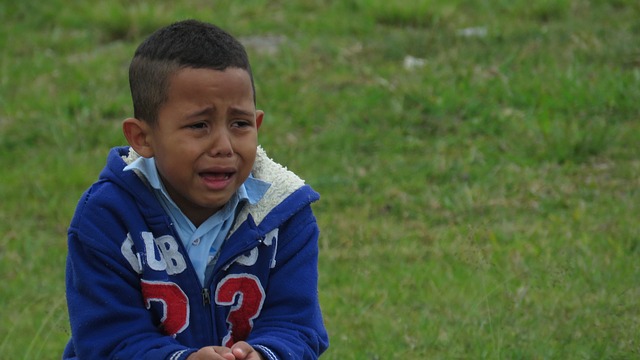This summer’s hurricane season was fairly quiet until Hurricane Dorian blew through offshore earlier this month. Then, Humberto threatened the South Florida area last week, putting everyone on high alert for the second time in less than a month. For some children, hearing about the devastation in the Bahamas, watching parents make storm preparations and evacuation plans, or knowing that there are other menacing storms out there can bring up hurricane anxiety.
Symptoms Of Hurricane Anxiety
While you are listening to updates and getting ready for an impending tropical storm or hurricane, don’t forget to talk with your child about their fears. If a storm is coming, they will likely be worried about their friends, their home and school, their pets, and all the disruption that a major storm can bring.
In addition, if they have ever been through a hurricane, they will remember the fear they felt while sitting in the dark, listening to the wind howl and feeling the house shake. After a terrifying experience like that, even hearing the pounding rain of a normal storm could bring up some post-traumatic stress for the child. This can be magnified by the act of going through preparations for another hurricane.
Children who have hurricane anxiety might show their fears in the form of physical or emotional symptoms, or both.
Physical symptoms include thing like:
- Trembling
- Having headaches
- Saying that they feel dizzy or lightheaded
- Stomach aches, vomiting, nausea
- Experiencing nightmares, having trouble sleeping, or being afraid of the dark
Emotional symptoms can show up in the form of:
- Being clingy or wanting to keep you or another caregiver in sight at all times
- Crying or being overly whiny
- Talking incessantly about what they experienced in a past storm
- Being jumpy and on edge
- Getting physically ill or acting distressed if they are being separated from their loved ones for any reason
- Expressing fears about them or someone they love possible being harmed because of the storm
- Being afraid to be in a room by themselves
- Refusing to participate or avoiding taking part in activities that will keep them away from their parents or caregivers, even briefly
How To Help A Child Who Has Hurricane Anxiety
If your child shows a heightened level of concern or fear about storms, our child psychologist recommends that you:
- Talk to your child about their fears and let them know that it is okay to be worried.
- Talk positively about the preparations you will be making to keep them safe and where you all will go if you have to evacuate. If the child knows they will be in a safe place, it can help to reduce their anxiety.
- Assist them in soothing their fears by letting them sleep with a favored stuffed animal or allowing them to keep a nightlight or hallway light on at night during a storm.
- Help your child choose something to take with them just in case you do have to go to an evacuation shelter. For example, they can pack a backpack with toys, books and games, then keep it nearby so they feel more prepared for the storm.
- Remind your child that hurricanes can and do routinely change course. Many times, the storm won’t impact your area, despite the warnings. We saw this when Hurricane Dorian skirted the shore of Florida instead of hitting the state directly as forecasters first thought would happen.
- This should go without saying, but do not tell your child about any bad experiences you might have had during a hurricane or bad storm! There is no need to add to their fears.
Even though you talk to your child about the steps you are taking to keep them protected, their hurricane anxiety may still continue. If their stress level seems too high for the current situation, it is best to seek the help of a child psychologist.
These experts can help your child identify and change their anxious thoughts. Through role-play and modeling of positive behaviors, your child will learn coping strategies to lessen their fearful response to an approaching hurricane or other storm.
Talk With A Child Psychologist At Our Children’s Center
If your child seems unduly worried about storms or overly fearful when there is talk of a possible hurricane, it may be time to speak with a child psychologist. For more information, contact the Children’s Center for Psychiatry Psychology and Related Services in Delray Beach, Florida or call us today at (561) 223-6568.

